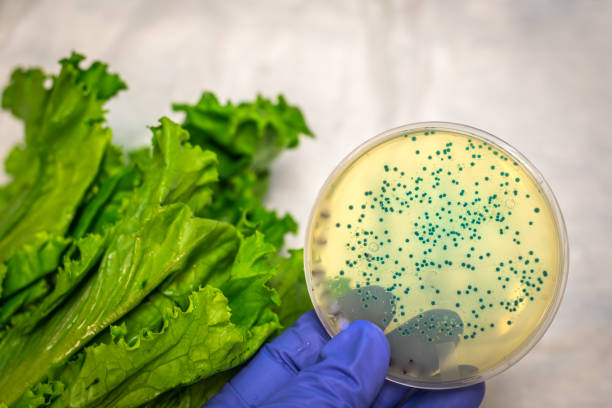Listeria is bacteria that primarily affect animal foods. The pathogens keep being heard when supermarkets have to call back certain goods because bacterial infestation has been determined. But how do the germs actually get into our food and how does infection with the bacteria come about?
What is listeria and how do you get our food?
Listeria is chopstick-shaped bacteria that occur almost everywhere in nature but particularly likes to romp in the ground, wastewater, and frolic in agricultural areas. The bacteria can find a way into the processing chain when processing animal foods via contamination. It is therefore not surprising that the most common cases of food recalls affect animal foods such as meat, fish, poultry, cheese, or dairy products. Vegetable foods can also be contaminated with listeria. The bacteria spread over the earth on salads and other vegetables and thus find their way to our plates.
There are several types of bacteria that belong to the genus of listeria. The species of Listeria Monocytogenes is particularly relevant for infections in humans. They are tough and find perfect growth conditions in the temperature range from -0.4 to 45 degrees Celsius. That drives them into constants throughout the year. Another problem with this temperature feel-good area: Even if the cooling chain is observed from agricultural operation to the refrigerators of the end users, the bacteria can still continue to be used at once.
In most cases, people consume foods that are affected by Listeria. The immune systems of most people are strong enough to cope with a few listerias. However, if the infestation is very high, or a person's immune system is weakened, listeria infection can occur. Listeriosis is then spoken of in medicine.
Symptoms of listeriosis
Fortunately, there are only a few cases of listeriosis in the UK every year. Infections occur in the only three-digit range every year. According to RKI, only 608 cases were registered in 2014. However, these are only the cases that were treated by a doctor and reported to the RKI.
If listeriosis breaks out in people with healthy immune systems, the following symptoms of an otherwise mild course of illness usually occur:
- Fever
- Feeling of illness
- Exhaustion
- Headache
- Body ache
- Nausea
People with weakened defenses and pregnant women in particular can also develop forms of severe listeriosis. If the first symptoms such as fever and body aches do not subside and the bacteria spread in the body, there is a risk of complications such as:
- Blood poisoning
- Meningitis
- Organ and tissue inflammation (such as heart skin, conjunctiva, or joints)
Danger: Listeriosis during pregnancy
There is a higher risk of listeriosis for pregnant women. According to the official leaflet of the RKI, the disease is often symptomless or only with slight flu-like signs. With every infection, however, there is a risk that the bacteria will infect the unborn child. This can lead to the death of the embryo in the early phase of pregnancy. If the children put themselves with listeria during birth, brain infections often develop.
Treatment of infection with listeria
Slight symptoms usually sound off by themselves within a few days. However, if the pathogens have spread in the body and have developed severe listeriosis, doctors can counteract antibiotics. Treatment with antibiotic drugs is usually successful. However, the antibiotics have to be taken over at least three weeks to prevent a reduction.
Listeriosis prevention: simple rules of food hygiene
In order to kill listeria in food or prevent infection with them, simple rules in dealing with and eating food are recommended:
- Do not eat raw meat (e.g. minced meat)
- Fry meat, fish, and poultry always well through
- Do not eat the bark of lubrication cheese (e.g. Brie)
- Wash salads and vegetables thoroughly before processing
- Wash your hands thoroughly before working with food



Post a Comment